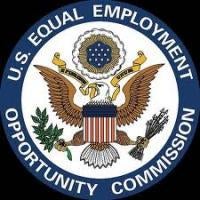Owner Referred to Employee as a ‘Bag of Bones,’ Then Fired Her, Says EEOC
Hawaii Healthcare Professionals, Inc. – also known as Hawaii Professional HomeCare Services, Inc. – and its owner have been ordered to pay $193,236 to a woman allegedly fired due to her age, in a default judgment awarded by U.S. District Judge Alan C. Kay in Hawaii, the U.S. Equal Employment Opportunity Commission (EEOC) announced today. The judgment resolves an age discrimination lawsuit filed by the EEOC against the Honolulu-based home health care services company in 2010.
The company’s owner, Carolyn Frutoz-De Harne, ordered the 2008 termination of Debra Moreno, a then-54-year-old office coordinator at its Maui facility, according to the EEOC. The termination proceeded despite reports by the facility’s manager, who actually hired and supervised Moreno, that Moreno was a thorough and efficient worker. Frutoz-De Harne allegedly ordered that Moreno be fired after telling the manager that Moreno “looks old,” “sounds old on the telephone,” and is “like a bag of bones.” Frutoz-De Harne also allegedly told the manager that Moreno was not the type of person she wanted representing her company, the EEOC said. After the termination, the manager reported the ageist comments to Moreno, who in turn filed a discrimination charge with the EEOC.
Following an investigation, the EEOC filed suit against Hawaii Healthcare Professionals in U.S. District Court for the District of Hawaii (EEOC v. Hawaii Healthcare Professionals, Inc. a/k/a Hawaii Professional HomeCare Services, Inc., Case No. CV-10-00549 BMK), and subsequently added Frutoz-De Harne as a named defendant. The EEOC charged that the conduct was a form of age discrimination, which violates the Age Discrimination in Employment Act (ADEA).
In addition to the monetary award for Moreno, the judgment also requires that the defendants prevent future age discrimination and retaliation by developing and disseminating procedures to address such claims and training all staff on their rights with respect to age discrimination and retaliation, with additional training for supervisors on how to deal with complaints. The defendants also must retain an outside equal employment opportunity (EEO) coordinator to assist with these efforts and post a notice for employees regarding the judgment. The EEOC will monitor compliance with the judgment.
“When I learned that my age was the reason for the disparaging remarks and termination, I was embarrassed and demoralized. For me, it was the ultimate blow. Age had never before been a consideration for me,” said Moreno. “The court's decision makes me feel optimistic and vindicated. I am really grateful that the EEOC exists to help people like me.”
Anna Y. Park, regional attorney for the EEOC’s Los Angeles District Office, which oversees the agency’s litigation in Hawaii, said, “Age should never be a factor when evaluating an employee or job applicant’s worth. What makes this case especially appalling is the flagrant disregard for a worker’s abilities, coupled with disparaging ageist remarks and thinking. The EEOC will not tolerate such violations of civil rights law and is pleased by the court’s decision.”
Timothy Riera, director of the EEOC’s Honolulu Local Office, added, “Employers should ensure that equal opportunity is available for all applicants and employees, regardless of age or any other legally protected basis. Employers should have a strong anti-discrimination policy and offer training to reinforce the goal of equal opportunity and to prevent future civil rights issues from arising.”
The EEOC enforces federal laws prohibiting employment discrimination. Further information about the EEOC is available on its web site at www.eeoc.gov.



 />i
/>i

